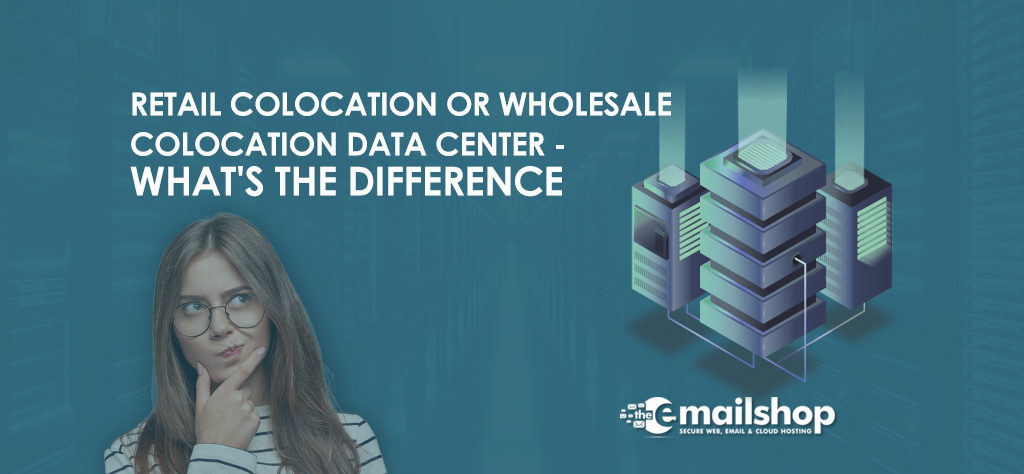What factors determine whether colocation is regarded as a retail colocation or wholesale colocation, and how may these factors be evaluated? It is based on the individual you are having the conversation with. When classifying their clients into one of numerous colocation types, the various colocation data center experts and colocation network operators that provide their services employ a variety of different cut-off criteria. This article discusses the various service options available, the various criteria that help determine whether a client is a retail or wholesale colocation customer, and the pricing structure for the two types of customers.
What exactly is a “colocation”?
The practice of keeping the information technology (IT) architectures of numerous renters in a similar physical place is referred to as colocation. The site in question is a datacenter facility that has been rented by several renters. This notion is also often expressed via the use of the terms collocation, co-location and collocated. This infrastructure might be made up of actual or virtual servers, network routers, storage devices and switches, and possibly more pieces of hardware and software altogether.
Businesses, big corporate customers, government organizations, and other service providers are common renters of the colocation space offered by colocation providers inside a colocation data center. In return for the money that they pay, customers get a completely operational website, which often comes with the following components as standard: elevated floor space, network connection, power circuits, physical security, and essential system monitoring. The customer is provided with the opportunity to remotely host their company’s mission-critical information technology infrastructure in one or more colocation data center locations of their choice, due to the all-inclusive nature of this service. When you look at the many colocation service alternatives that are available, you will see that they can all be broken down into four categories: connection, power, cost structure and space.
-
Space
A provider will often refer to anything that is less than 10 colocation racks or cabinets as retail colocation space.” Instead of being contained behind a private cage, the equipment for this area is often housed on one or more colocation racks that are either next to one another or spread out throughout the whole of the colocation data center and linked to one another via cross connects. In addition to per-unit colocation space that is evaluated in increments of 1U, 2U, 3U, and 4U, retail colocation facilities may offer lockable colocation quarter racks, full racks and half racks. It is also possible for it to contain a number of locking racks.
-
Power
Another criterion or measurement that is used for retail colocation is power, often known as usable power needs. When determining how much to charge for their services and whether or not to designate them as retail or wholesale, colocation providers will use metrics such as rack power densities, power circuits, and usable power. Depending on the geographic location of the colocation data center or the data center facility itself, various power factors are used by different providers to classify retail colocation. These factors are used to categorize retail colocation. The maximum capacity for retail colocation might be 200 kW, 300 kW, 700 kW, or 1 MW.
-
Connectivity
When it comes to deciding whether or not a service should be classified as retail or wholesale, the services provided over the internet have a far less significant impact. In the case of retail colocation, a number of service providers provide mixed internet connectivity or give customers options with respect to the customer’s chosen telecom carrier.
-
Cost Structure
A complete colocation rack that includes electricity (208V/20A) and an internet connection (100 Mbps blended). In addition to the cost of the bundled services, there is an additional fee for installation, which is also referred to as non-recurring costs (NRC). The majority of colocation suppliers, regardless of whether they are retail or wholesale, will incorporate the cost of the infrastructure into both the initial payment and the monthly recurring fees. This is the case regardless of whether the provider is retail or wholesale (MRC). This category of expenditures includes the fees associated with the provision of additional electricity, cooling, and communication, including the installation of fiber optics. In addition, it encompasses rack containment, security and facility access in addition to the installation of essential colocation data center devices such as power supplies and backup generators. When it comes to retail installation, the price is often lower owing to space and complexity limitations, as well as the chance that the racks have already been set up. This helps explain why the cost is generally lower.
What is meant by the term “wholesale colocation”?
Large businesses, service providers, and public-sector organizations are the target customers for wholesale colocation services.
-
Space
A wholesale colocation customer will demand additional space, and as a result, they may be given a locked private cage, a private suite, or even the option of having an extension or new colocation data center facility created to fit their requirements. To protect the integrity of the information technology infrastructure contained inside a multi-tenant data center facility, wholesale colocation space is designed to be physically isolated from other tenants.
-
Power
The price of wholesale colocation is determined in large part by the electricity expenses that are connected to the colocation space. As was previously said, the majority of wholesale colocation customers demand more than 500 kW of total power. However, this figure is subject to change. The majority of colocation service providers begin by determining the overall usable power needs of the customer. For instance, a customer may want 500 kW in order to ensure that their information technology hardware in the offshore colocation environment where they are situated receives an adequate amount of power. Before going on to the next step of determining the amount of space that is needed, the provider will begin by computing the rack power density for every colocation rack. If the client wants 400 kW of power and each rack can contain 10 kW of power, the colocation provider will provide the customer with 50 colocation racks to fulfill their requirements.
-
Connectivity
The only things that are normally included in wholesale colocation are space and electricity. The customer may choose the colocation provider, telecom carrier, and Internet service provider (ISP) that will provide them with Internet and network access. Internet demands for wholesale colocation may include extra fiber optic lines and requirements that are specific to the sector. These may include roof rights, cross connections, and dark fiber. When choosing a wholesale colocation provider, you should think about how much bandwidth you need and how many on-net carriers are available.
-
Cost
The cost model for bundled services that is employed by retail colocation is different from the pricing alternatives available for wholesale colocation. Pricing options that wholesale colocation providers may provide include metered or sub-metered power prices; pricing per kW, MW, or kVA, and so on. When there is variability in the amount of power used, having the power metered offers more price flexibility. The majority of colocation providers that provide metered colocation demand a minimum commitment from their customers and then charge a per-kilowatt-hour fee for consumption that exceeds the amount of the commitment. Because of the specific needs and the layout of the area, the wholesale market also has a higher installation cost.
You Might Also Like to Read: Colocation UK – Which Server Rack Option Is Right for You?
Which kind of colocation, retail or wholesale, is more suited to your needs?
Which kind of colocation—retail or wholesale—would best meet the needs of your existing information technology infrastructure? The customer and the colocation provider are the most important factors in determining the response. A decent rule of thumb is to consider anything with fewer than 10 colocation cabinets to be retail colocation. Wholesale colocation refers to any space that contains more than 10 cabinets and has power needs of more than 100 kW.
Is it possible to save costs by using wholesale colocation rather than retail colocation? Yes. Nevertheless, there is a greater commitment required in terms of the NRC and MRC, as well as the duration of the contract. Even if the fees for colocation are lowered, the wholesale colocation supplier must still be able to turn a profit throughout the duration of their company’s operation.
For Discount and Offers, Visit our Official Facebook Page









